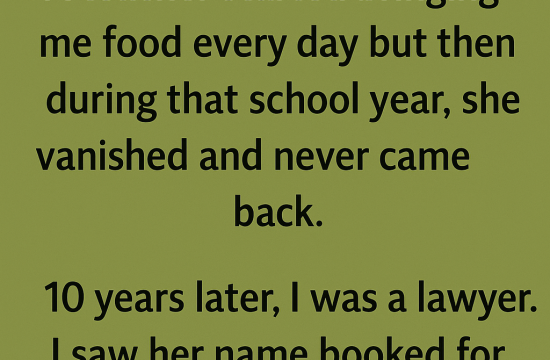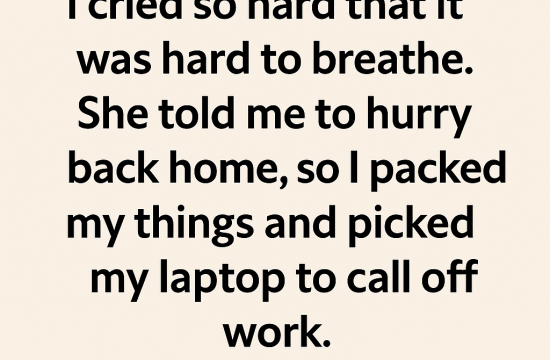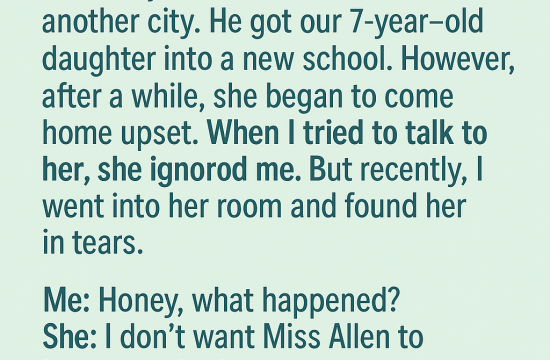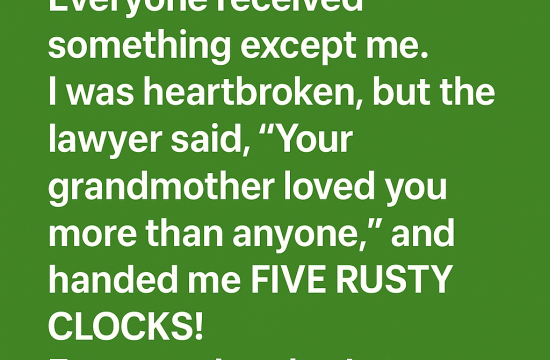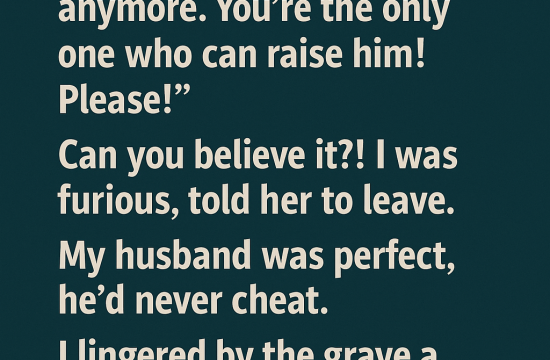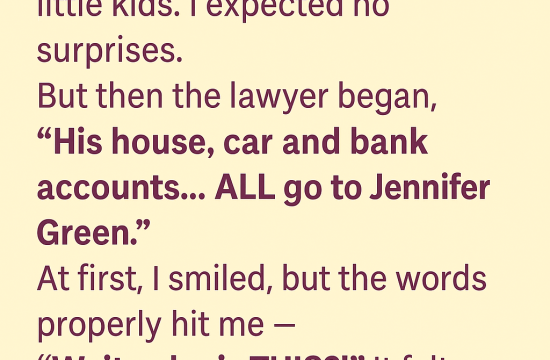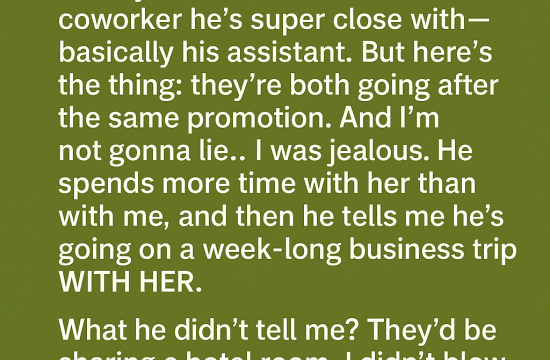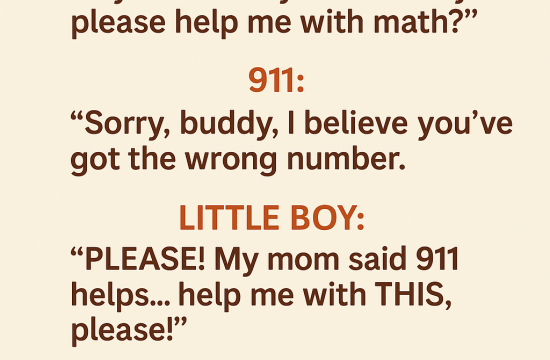She Walked Into My Nursing Home Room Saying, ‘I Finally Found You’—And Turned My Quiet Life Into an Adventure
So, I’ve lived my life in the quietest way possible—or at least that’s what I always believed.
I’m Agatha, in my early seventies now, and I’ve spent most of my days just getting by. I never had a husband or kids, and I don’t have much family to speak of, really.
My world used to revolve around the college cafeteria where I worked as a cashier for nearly thirty years. Every day, I’d greet students with a smile, scan their meal cards, and wish them luck on their exams.
I saw thousands of faces over the years—most of them too young to understand the slow, creeping loneliness that settles in your bones as you age. But I told myself I was content. I convinced myself the quiet life was enough.
The cafeteria job paid the bills, and I was careful, almost stubborn, about saving. I knew there wouldn’t be anyone to look after me when I got old, so I tucked away what I could, bit by bit, until I could afford a place in a decent nursing home.
And now, here I am, in that very home, living out my days among others who also carry invisible histories. We spend our afternoons playing cards, knitting, and whispering about the rare visitors who wander these halls.
My closest friend here is Sarah, one of the caregivers—a bright young woman in her early thirties whose laughter could thaw even the iciest heart.
After lunch, we have a ritual: we sit by the window and play Gin Rummy. Those afternoons of cards and quiet companionship keep me going.
One Tuesday, as Sarah teased me about my terrible hand, something unusual caught my eye outside the window.
A sleek, black SUV glided into the parking lot—elegant and out of place among the dented old sedans and the occasional ambulance.
“Now, who do you think that could be?” Sarah asked, shading her eyes to follow my gaze.
“I don’t know,” I murmured. “We don’t get cars like that around here.”
The driver’s door opened, and a woman stepped out—a figure so striking she could have walked off the cover of a magazine. Early forties, maybe younger, in a tailored coat. Her hair was loosely tied, effortless and perfect. She moved with a quiet confidence I’d never known in myself.
“Wow,” Sarah breathed. “She’s gorgeous. Wonder who she’s here for.”
But there was something about her face—something that sent a shiver down my spine. A flicker of familiarity I couldn’t quite catch.
“Do you recognize her?” Sarah asked.
“I feel like I should,” I admitted, squinting. “But I can’t place her…”
We watched her stride to the entrance and disappear from sight.
Sarah laughed softly. “Well, she’s not here for one of us.”
But a few minutes later, there was a knock on my door.
Sarah and I exchanged startled glances.
“Come in,” I called, my voice uncertain.
The door opened, and there she stood—the elegant stranger—her eyes locking onto mine like she’d found something she had been searching for all her life.
“I finally found you,” she said, her voice trembling.
“I’m… I’m sorry,” I stammered. “Do I know you?”
She stepped closer, studying my face as if memorizing it. “I don’t expect you to remember. But I remember you. Twenty-two years ago, you changed my life.”
My heart thudded. “Twenty-two years ago? What do you mean?”
She smiled through the shimmer of unshed tears. “I was a student at the college where you worked. My name is Patricia.”
The name cracked something open in my memory. Patricia—the shy freshman with tearful eyes and books clutched to her chest, cornered by a group of sneering classmates. I remembered the cruel laughter, the hot anger rising in me, the words I flung at them until they scattered. I remembered sitting with her afterward, over cooling coffee, telling her she mattered.
“You…” My voice caught. “You were that girl. The one they were teasing.”
Patricia nodded, eyes bright. “Yes. And you were the only one who stood up for me. You told them to leave me alone. You told me I was worth more than how they treated me.”
I closed my eyes for a moment, the memory blooming like a long-forgotten flower.
“You saved me that day,” Patricia went on, her voice thick with emotion. “I carried your words with me when my parents moved me overseas. When the bullying started again, I thought of you—and I fought back. I finished school. I built my own company. I built my life… all because of what you gave me in that cafeteria.”
Tears stung my eyes. To think that a single act of kindness, something I’d done and forgotten, had rippled across decades and continents—it left me speechless.
“I’ve wanted to thank you for years,” Patricia said. “It took me so long to track you down. But I had to do it. I needed you to know.”
She crossed the room and folded me into her arms, and for the first time in so many years, I felt seen. I felt important. I felt loved.
“You didn’t have to come all this way,” I whispered.
Her smile was radiant, warm enough to light the dim room. “I wanted to. And I didn’t just come to thank you.”
She hesitated, then took my hands in hers. “I have a question.”
My heart fluttered. “A question?”
Patricia took a breath. “I’ve done well for myself. I’ve traveled, worked hard, saved. And now I’ve planned something special—a trip around the world. And I want you to come with me.”
I stared at her, stunned. “Me? Travel… the world?”
“Yes,” she said softly, squeezing my hands. “Because once, you showed me the world could be kind. Let me show you the rest of it.”
For a long moment, I couldn’t speak. All those years of thinking my story was over, that my life had shrunk to these four walls and card games by the window… and here was Patricia, proof that life could surprise you even in your seventies.
Tears blurred my vision, but they were happy tears this time.
“I would love that,” I whispered, my voice trembling with a joy I hadn’t felt in decades.
And just like that, the quiet life I thought was over unfolded into something brand new—a promise of distant horizons, of laughter and adventure, and of a friendship born from a single act of kindness so many years ago.



